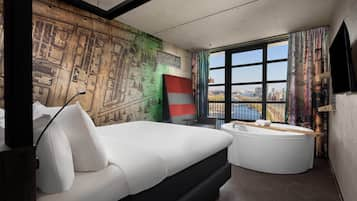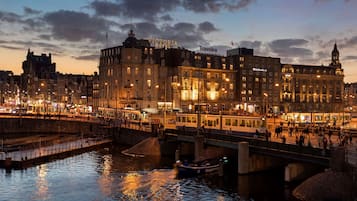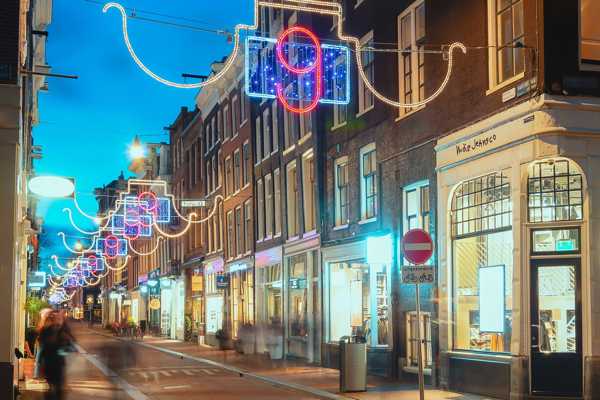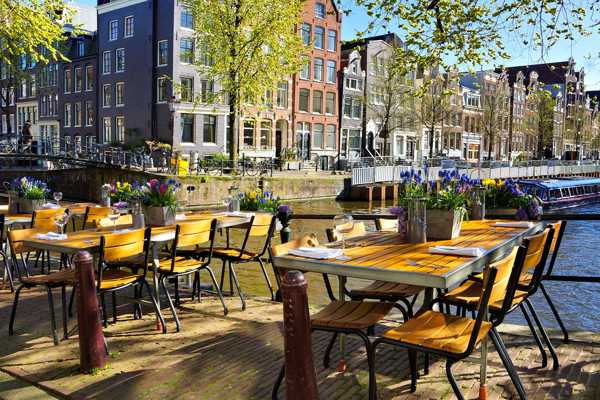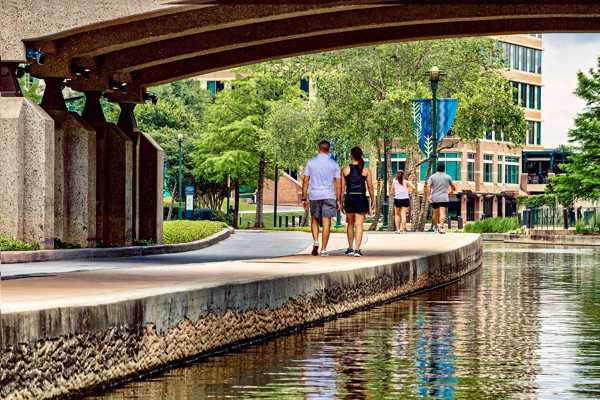Amsterdam Centraal station is usually the first port of call for any travellers whizzing into the capital of the Netherlands by train. It's also the largest railway station in the country and a bustling interchange within Amsterdam itself, connecting bus lines, tram lines, and even cross-canal ferries that go to less-trodden outer districts like Noord and Oost.
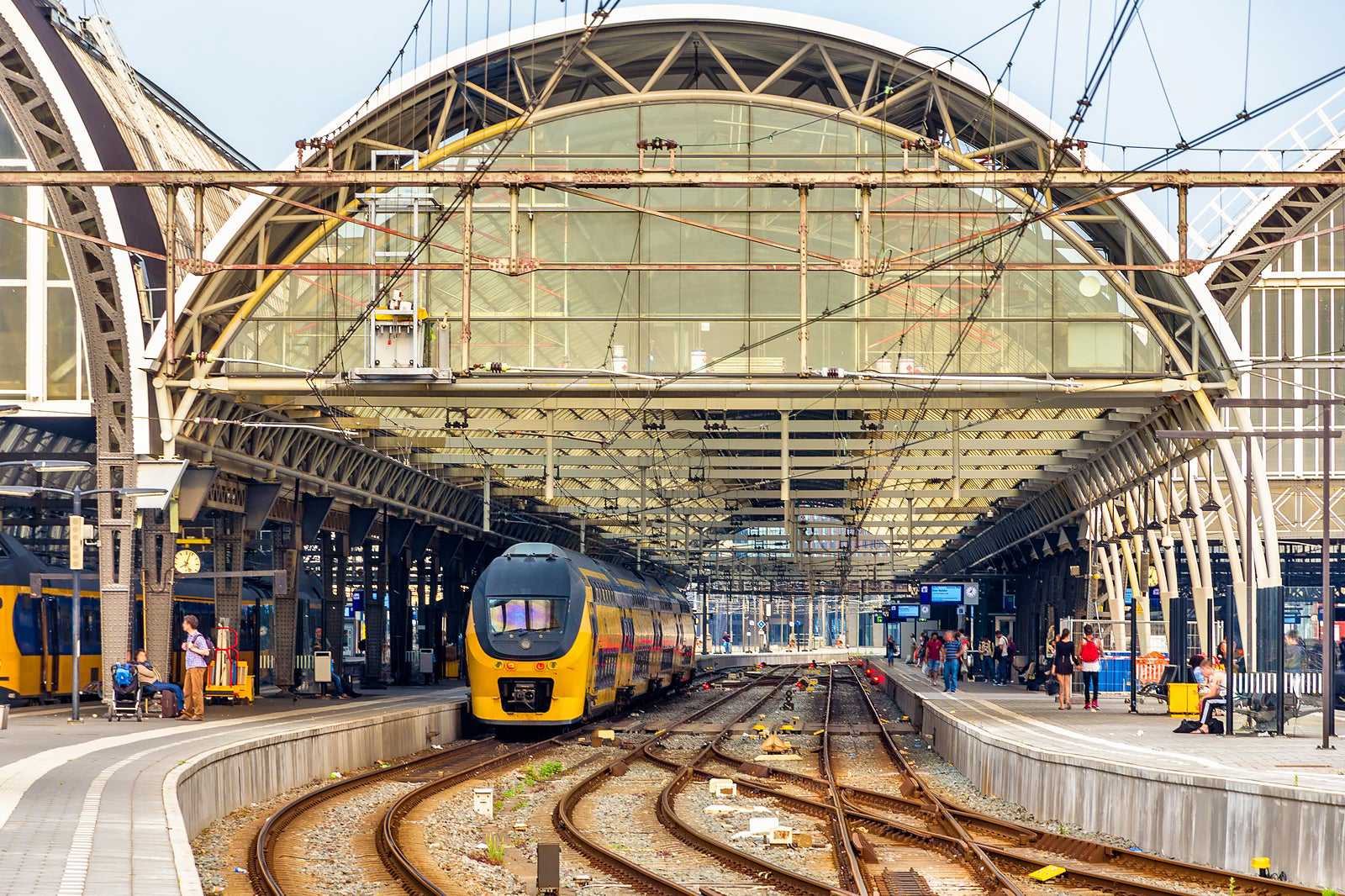
A brief history of Amsterdam Centraal station
The construction of Amsterdam Centraal station started in 1882. It was designed and managed by the revered Dutch architect Pierre Cuypers, who was riding high after completing the Rijksmuseum on the other side of the city. The building was laced with controversy from the get-go, though, as many locals thought it would ruin their beloved waterfront area.
However, the station was finished in 1884 and opened to the public. People were quickly coming by their thousands simply to see the audacious piece of mammoth building work. Historians now credit the construction of the station as being a turning point in the development of Amsterdam as a whole, helping it leave behind its sea-facing roots and become a truly urban metropolis.
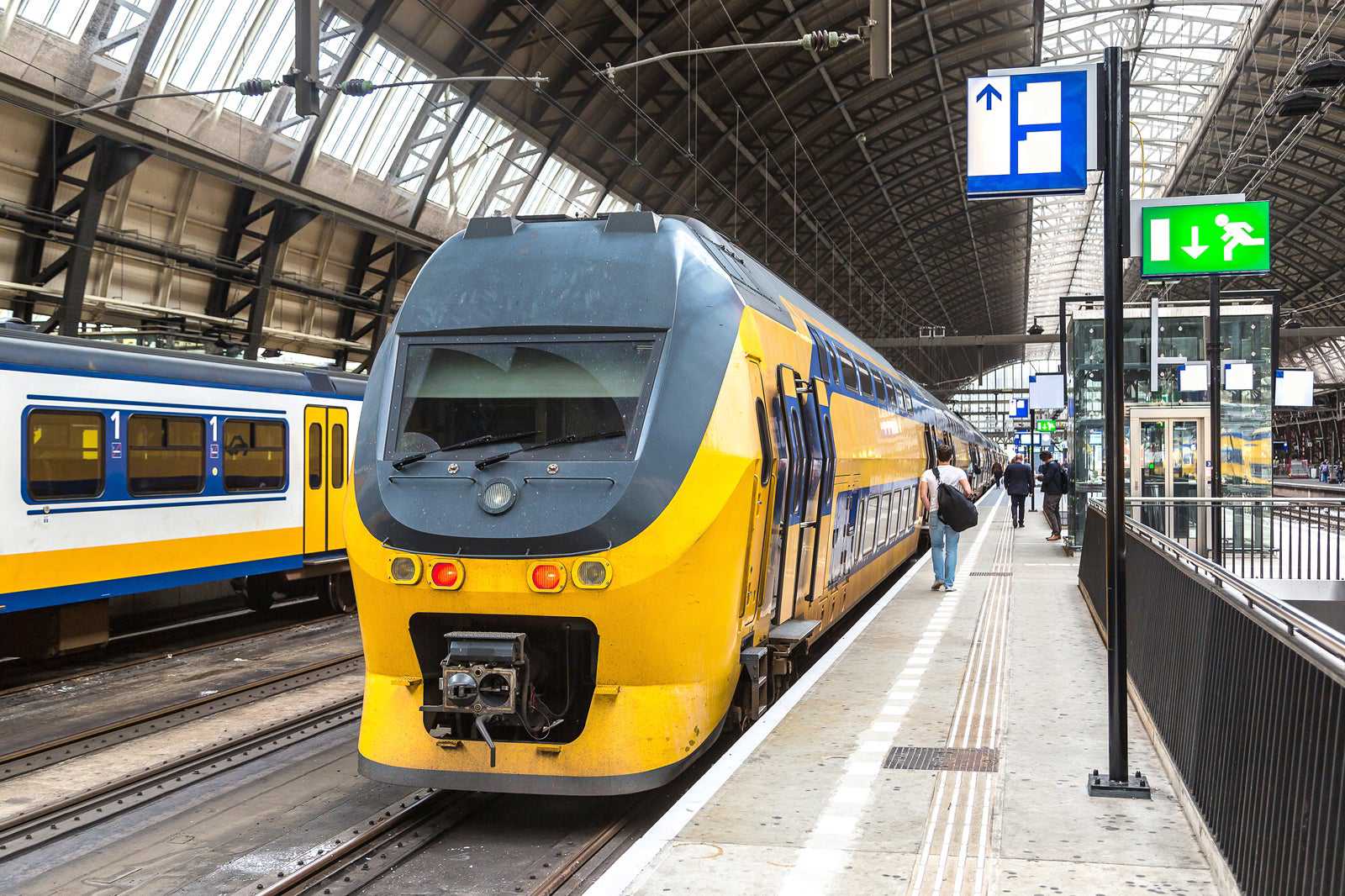
What are the highlights of Amsterdam Centraal?
The obvious highlight of Amsterdam Centraal is that it's the perfect starting point for jaunts around the Dutch capital. Journeys via trams, trains and ferries begin and end here, meaning a hotel in the vicinity is a good option if you're looking to explore all corners of the city.
A 27-minute tram can whisk you to the bohemian enclave of De Pijp. That's one of The Dam's most multicultural areas, where falafel joints mingle with the enthralling brewing exhibits of the Heineken Experience. Or you could take the boat to Noord. They go every 5 minutes on average, offering an efficient ticket to off-beat sites like the graffiti-strewn STRAAT Museum and the serene Noorderpark. But that's only 2 examples. You can go east, west, north and south from here in a jiffy, too.
Amsterdam Centraal is also worthy of a visit for its unique architecture. A striking mix of Neo-Gothic and Renaissance Revivalism, it all adds up to an impressive mass of redbrick frontispieces and filigreed turrets. Inside is where you get to see the colossal domed train sheds, which are now linked by underground concourses laden with high-street fashion shops and bustling cafés.
Another thing to know about Amsterdam Centraal is that it's the place to catch locomotives going all over Europe and the rest of the Netherlands. Connections from here can take you to Paris, Berlin, Innsbruck – the list goes on. It's an Interrailer's dream come true.
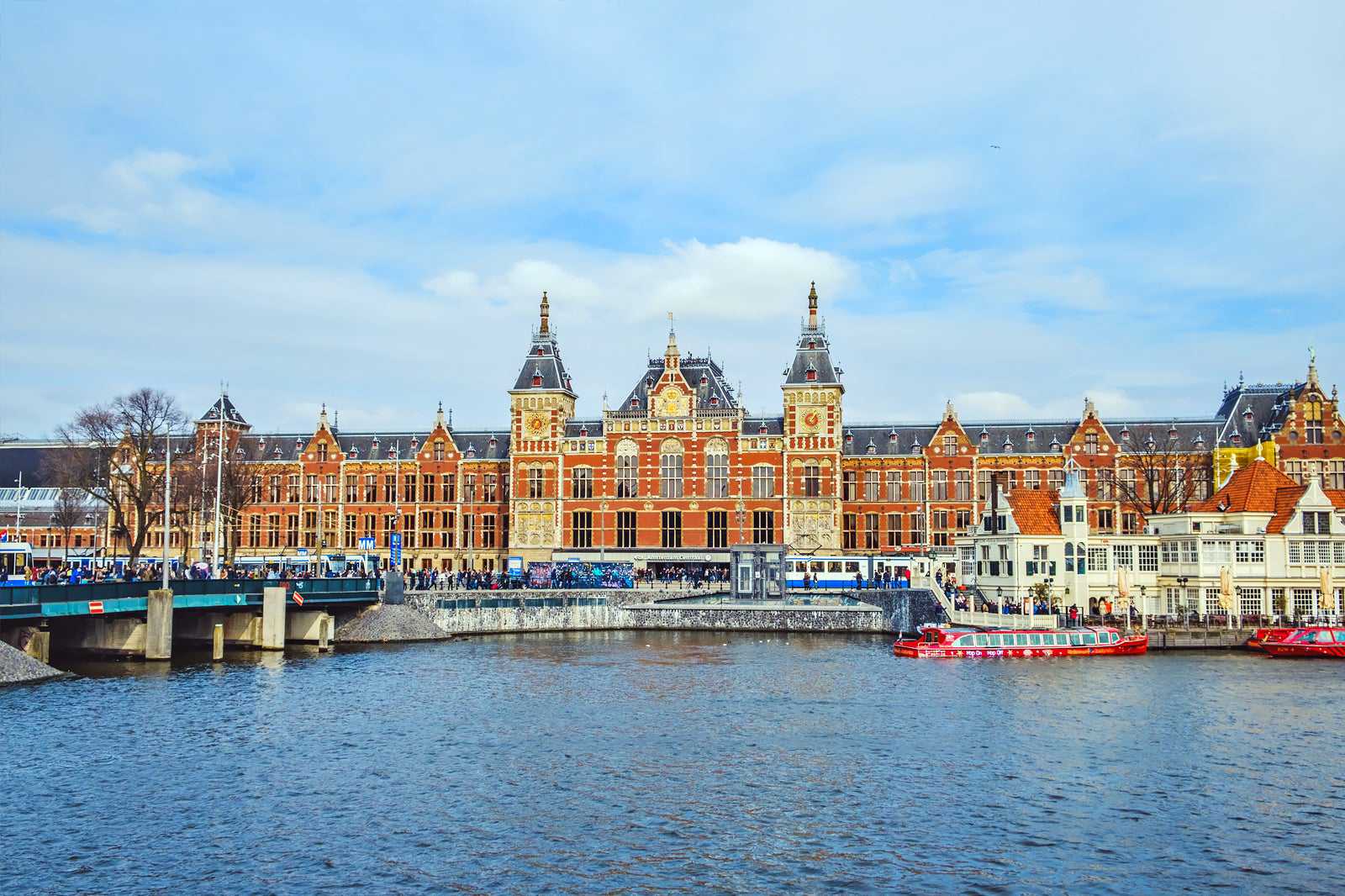
Good to know about Amsterdam Centraal station
Amsterdam Centraal station is one of the most important transport interchanges in the whole of the Dutch capital – indeed, in the whole of the Netherlands. For that reason, it really should be a cinch to get here. Virtually all of the main tram lines lead to Centraal, stopping just outside the front by the Damrak canal. Ferries that link to Noord usually leave from jetties on the quieter north side.
You can also walk to Amsterdam Centraal from Dam Square and the Red Light District. Just be aware that the Damrak plaza that links it to those popular areas is always very busy, with lots of traffic – both bikes and vehicles.
If you're arriving in Amsterdam Centraal station for the first time, be aware of pickpockets and the common hotel runners. They're people who hang around the station and offer to help find accommodation.
Travellers getting the Eurostar from or to the UK will need to clear border checks for exiting or entering the Schengen Area. This is either done pre-departure or on arrival, so expect some delays to deal with all the admin.
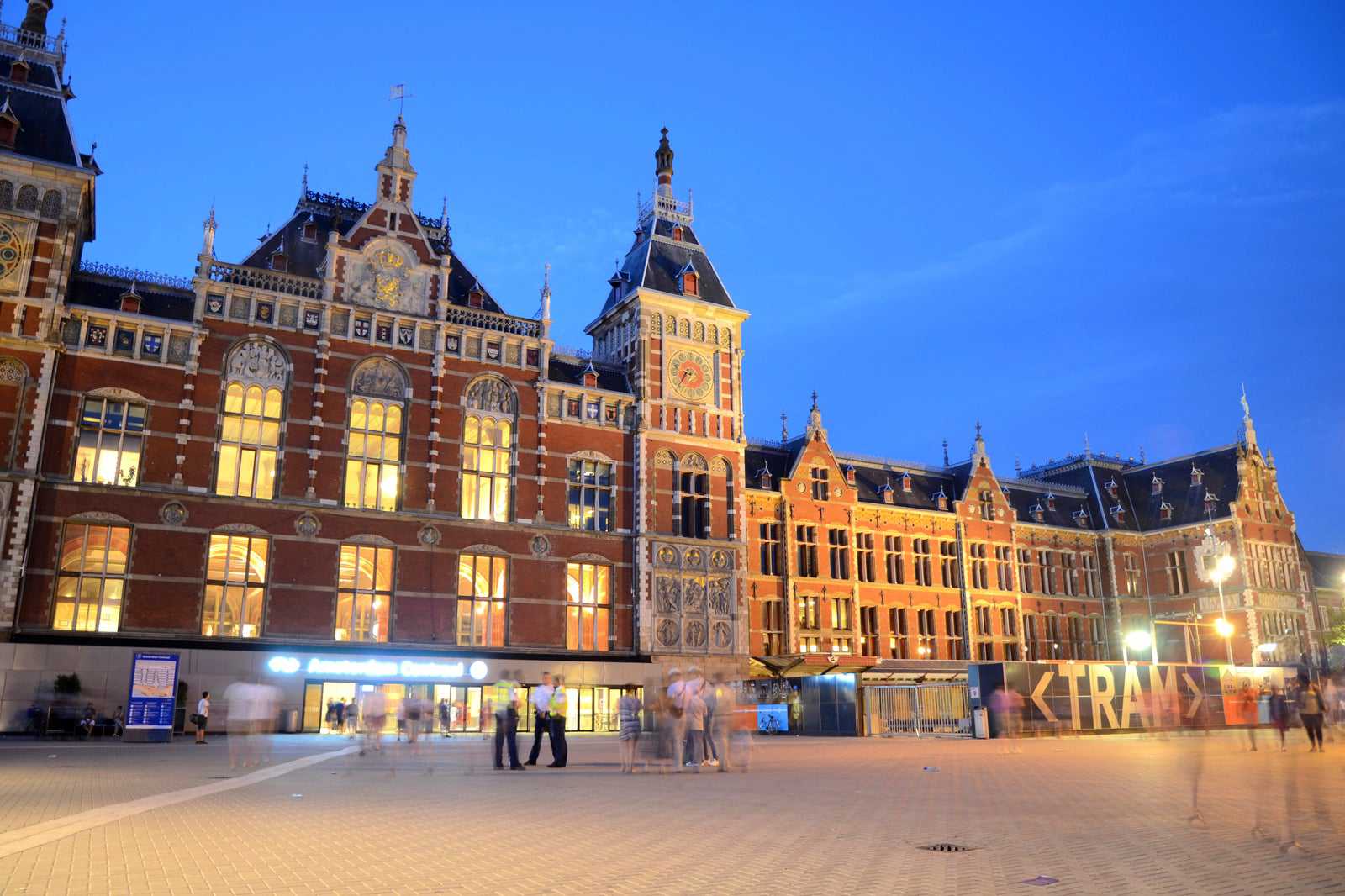
Amsterdam Centraal Station
Lage: Stationsplein, 1012 AB Amsterdam, Netherlands



